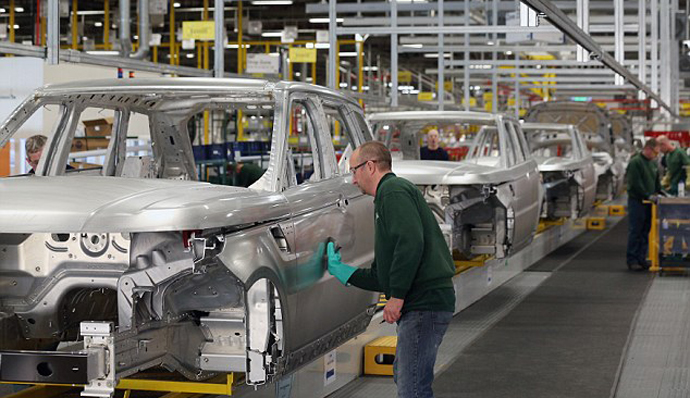Britain’s biggest car-marker Jaguar Land Rover said it wants to build electric cars in Britain in what would be a further boost to the UK automotive sector after the Brexit vote. “We want to build our EVs (electric vehicles) in the West Midlands, in the home of our design and engineering,” Speth told an industry meeting last Thursday evening.The firm, based in Coventry, said it wanted to make the UK a “global centre of excellence” for battery research, However, it said it needed support from government to improve infrastructure and power supplies.
It is to be noted that, Greg Clark, the business, energy and industrial strategy secretary, has said making Britain a world-leading hub for next-generation electric vehicles will be at the heart of the government’s new industrial strategy, providing one of the clearest indications yet of the sectors it wants to focus on in a post-Brexit economy. Coventry City Council has backed calls from Jaguar Land Rover for government support for plans to build electric cars in the city. Coventry City Councillor Jim O’Boyle said it was important the government “stepped up to the plate”. “We want to be at the forefront of this new technology, we don’t want it to go abroad,” he said.
The government has pinned its industrial strategy for a post-Brexit Britain on electric cars. Britain announced an extra 390 million pounds ($485 million) of funding to support autonomous and green technologies earlier this week, following on from a raft of proposals designed to promote the country as a hub for innovation over recent years.
David Bailey, professor of industrial strategy at Aston Business School, said: “Electric cars so far haven’t taken off in a big way partly because of the upfront costs and relatively poor consumer perception but I’m confident that will change. We’ll see a lot of new cars in 2017 with significantly greater range, like the Tesla Model 3, the Chevrolet Bolt, as well as models from Renault and Nissan. They will be game-changers. “We’re about to see the first wave of viable electric cars that can compete in the mass market – and when battery prices come down in the mid-2020s there will be a tipping point when EVs can outcompete the internal combustion engine.”
JLR’s challenge comes after Nissan announced it would produce two new models at its Sunderland plant, backed by assurances from the government over investment in research and development. Jaguar Land Rover wants half its cars to be available in an electric version by the end of the decade, after showcasing its first electric car at the Los Angeles Auto Show earlier this month. Electric vehicles currently represent less than 1% of the European market. A serious commitment from a big hitter like JLR will help change that.


